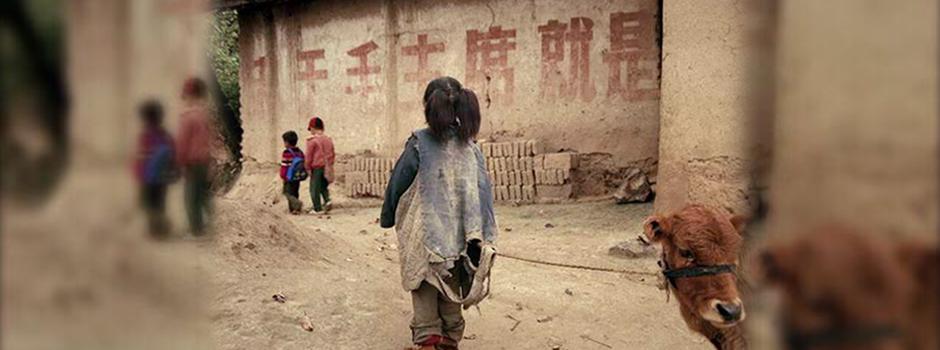Minchao Jin, assistant professor of Social Work at NYU Shanghai and at the NYU Silver School of Social Work, tells The Gazette about the Global MSW program at NYU Shanghai--the first NYU master’s-level program to launch in China--as well as how he blends scientific thinking with his passion for poverty alleviation and community development.
What made you pursue an M.A and PhD in Social Work after earning a B.A in Material Science and Engineering?
While I was an engineering student, I would often read sad stories in the news of how migrant children struggled to survive in poverty, and I started to question how my current work could help society’s disadvantaged groups, because making a more immediate difference mattered to me.
I felt passionate about volunteering as an undergraduate. I had the chance to apply my ideals outside of the lab when I taught at a school for migrant children in Beijing, helped with clothing and book donations on campus, and provided volunteer services for people with disabilities. However, I was confronted with some important questions: How effective are volunteer services for the groups they aim to support? What really is kindness? What are the best services to truly help someone?
Social work was not a popular field during my undergraduate study—few people and even students knew about it as a major. Even with a scholarship to Washington University, I struggled with the transition, not entirely sure of my career direction. In many ways, I was taking the road unpaved--which was the fun part.

And now part of your work includes a program evaluation project that focuses on nutrition in rural areas of China.
The big question is how to asses the effectiveness of these programs. A solid program evaluation can foster collaboration between practitioners, scholars, beneficiaries and funders as well as the public. We’re not here to play judge or referee--the philosophy behind the evaluation is: let’s help the program.
Our team is working with The Shanghai United Foundation--helping them assess the effectiveness of their One Egg Program, which fundraises to provide one egg for one child per day in the poorest rural areas of China, often in mountainous regions of Yunnan and Sichuan.
Our current focus is analyzing the outcome. Looking at data such as the height, weight and age of malnourished children who have been supported by a program, we compare the results against criteria measured by the World Health Organization, in order to assess the program’s effectiveness.
Tell us a bit about NYU Silver’s Global MSW program at NYU Shanghai.
It’s similar to NYU’s two-year MSW program, but students attend the first year at NYU Shanghai and the second year in New York City, at NYU's Washington Square campus. We train social workers locally as well as students from other countries for a truly global social work education. They benefit from a variance in culture, policy, economy, and enhance their critical reflection on culturally appropriate practices. They’ll spend two semesters in a field instruction agency in each of the program’s two years for a total of 1200 hours of field learning experience. They’ll then graduate with an NYU-granted MSW degree.
How do your studies of the sciences shape your approach to Social Work and teaching it?
Social Work is a definitely a problem-oriented science. I was trained to think logically, and I think about social problems using an engineering frame of mind--with the process of reasoning, and with statistics and quantitative skills that I believe gives me an awareness. I teach my students to use a backwards-looking approach. Identify the needs, the problems, and the demands of a client. Step back to ask why they have these demands, and how their demands and needs can be met. Consider the costs, the type of intervention needed, and only then can we test it and analyze its effectiveness.



